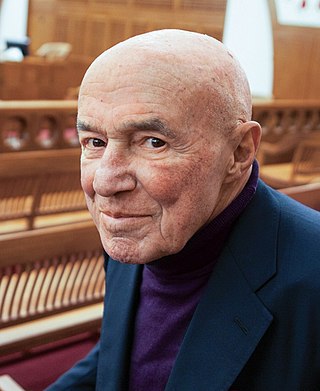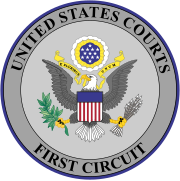
The Defense of Marriage Act (DOMA) was a United States federal law passed by the 104th United States Congress and signed into law by President Bill Clinton on September 21, 1996. It banned federal recognition of same-sex marriage by limiting the definition of marriage to the union of one man and one woman, and it further allowed states to refuse to recognize same-sex marriages granted under the laws of other states.

The availability of legally recognized same-sex marriage in the United States expanded from one state (Massachusetts) in 2004 to all fifty states in 2015 through various court rulings, state legislation, and direct popular votes. States each have separate marriage laws, which must adhere to rulings by the Supreme Court of the United States that recognize marriage as a fundamental right guaranteed by both the Due Process Clause and the Equal Protection Clause of the Fourteenth Amendment to the United States Constitution, as first established in the 1967 landmark civil rights case of Loving v. Virginia.

Goodridge v. Dept. of Public Health, 798 N.E.2d 941, is a landmark Massachusetts Supreme Judicial Court case in which the Court held that the Massachusetts Constitution requires the state to legally recognize same-sex marriage. The November 18, 2003, decision was the first by a U.S. state's highest court to find that same-sex couples had the right to marry. Despite numerous attempts to delay the ruling, and to reverse it, the first marriage licenses were issued to same-sex couples on May 17, 2004, and the ruling has been in full effect since that date.
GLBTQ Legal Advocates & Defenders (GLAD) is a non-profit legal rights organization in the United States. The organization works to end discrimination based on sexual orientation, HIV status, and gender identity and expression. The organization primarily achieves this goal through litigation, advocacy, and education work in all areas of LGBTQ rights and the rights of people living with HIV. In addition, GLAD operates a legal information line, GLAD Answers, where LGBTQ & HIV+ residents of New England can receive attorney referrals and information about their rights. The organization changed its name to GLBTQ Legal Advocates & Defenders in February 2016.
Chester John Straub was a United States circuit judge of the United States Court of Appeals for the Second Circuit.

Joseph Louis Tauro was a United States district judge of the United States District Court for the District of Massachusetts. He was the son of the late Massachusetts Chief Justice G. Joseph Tauro.

The American Foundation for Equal Rights (AFER) was a nonprofit organization active in the United States from 2009 through 2015. The organization was established to support the plaintiffs in Hollingsworth v. Perry, a federal lawsuit challenging California's Proposition 8 under the Due Process and Equal Protection Clauses of the Fourteenth Amendment to the United States Constitution. AFER retained former United States Solicitor General Theodore B. Olson and David Boies to lead the legal team representing the plaintiffs challenging Proposition 8.

Commonwealth of Massachusetts v. United States Department of Health and Human Services 682 F.3d 1 is a United States Court of Appeals for the First Circuit decision that affirmed the judgment of the District Court for the District of Massachusetts in a lawsuit challenging the constitutionality of section 3 of the Defense of Marriage Act (DOMA), the section that defines the terms "marriage" as "a legal union between one man and one woman as husband and wife" and "spouse" as "a person of the opposite sex who is a husband or a wife." Both courts found DOMA to be unconstitutional, though for different reasons. The trial court held that DOMA violates the Tenth Amendment and Spending Clause. In a companion case, Gill v. Office of Personnel Management, the same judge held that DOMA violates the Equal Protection Clause. On May 31, 2012, the First Circuit held the act violates the Equal Protection Clause, while federalism concerns affect the equal protection analysis, DOMA does not violate the Spending Clause or Tenth Amendment.
Mary L. Bonauto is an American lawyer and civil rights advocate who has worked to eradicate discrimination based on sexual orientation and gender identity, and has been referred to by US Representative Barney Frank as "our Thurgood Marshall." She began working with the Massachusetts-based Gay & Lesbian Advocates & Defenders, now named GLBTQ Legal Advocates & Defenders (GLAD) organization in 1990. A resident of Portland, Maine, Bonauto was one of the leaders who both worked with the Maine legislature to pass a same-sex marriage law and to defend it at the ballot in a narrow loss during the 2009 election campaign. These efforts were successful when, in the 2012 election, Maine voters approved the measure, making it the first state to allow same-sex marriage licenses via ballot vote. Bonauto is best known for being lead counsel in the case Goodridge v. Department of Public Health which made Massachusetts the first state in which same-sex couples could marry in 2004. She is also responsible for leading the first strategic challenges to section three of the Defense of Marriage Act (DOMA).

OutServe-SLDN was a network of LGBTQ military personnel, formed as a result of the merger between OutServe and the Servicemembers Legal Defense Network. OutServe-SLDN was one of the largest LGBT employee resource groups in the world. OutServe was founded by a 2009 graduate of the US Air Force Academy, Josh Seefried and Ty Walrod. There were over 7,000 members and 80 chapters worldwide.
Pedersen v. Office of Personnel Management is a federal lawsuit challenging the constitutionality of the Defense of Marriage Act, Section 3, which defined the federal definition of marriage to be a union of a man and a woman, entirely excluding legally married same-sex couples. The District Court that originally heard the case ruled Section 3 unconstitutional. On June 26, 2013, the Supreme Court of the United States ruled Section 3 of DOMA unconstitutional, and denied appeal of Pedersen the next day.
United States v. Windsor, 570 U.S. 744 (2013), is a landmark United States Supreme Court civil rights case concerning same-sex marriage. The Court held that Section 3 of the Defense of Marriage Act (DOMA), which denied federal recognition of same-sex marriages, was a violation of the Due Process Clause of the Fifth Amendment.
The Bipartisan Legal Advisory Group (BLAG) has been a standing body of the U.S. House of Representatives since 1993 that directs the activities of the House Office of General Counsel. BLAG can direct the General Counsel to participate in litigation or file an amicus curiae brief in cases involving the interests of the House or BLAG can call for legislation or a House resolution authorizing the General Counsel to represent the House itself. BLAG comprises five members of House leadership:

Golinski v. Office of Personnel Management, 824 F. Supp. 2d 968, was a lawsuit filed in the United States District Court for the Northern District of California. The plaintiff, Karen Golinski, challenged the constitutionality of section 3 of the Defense of Marriage Act (DOMA), which defined, for the purposes of federal law, marriage as being between one man and one woman, and spouse as a husband or wife of the opposite sex.
This article contains a timeline of significant events regarding same-sex marriage in the United States. On June 26, 2015, the landmark US Supreme Court decision in Obergefell v. Hodges effectively ended restrictions on same-sex marriage in the United States.

Cardona v. Shinseki was an appeal brought in the United States Court of Appeals for Veterans Claims (CAVC) of a decision by the Board of Veterans' Appeals upholding the denial of service-connected disability benefits for the dependent wife of a female veteran. The United States Department of Veterans Affairs denied the disability benefits based on the definition of "spouse" as "a person of the opposite sex" under federal statute. On March 11, 2014, the CAVC dismissed the case as moot after the Secretary of Veterans Affairs advised the Court that he would neither defend nor enforce the federal statute. Cardona subsequently received full payment of her spousal benefits, retroactive to her date of application.
The United States policy regarding same-sex immigration denied couples in same-sex relationships the same rights and privileges afforded different-sex couples based on several court decisions and the Defense of Marriage Act (DOMA) until the U.S. Supreme Court ruled Section 3 of DOMA unconstitutional in United States v. Windsor on June 26, 2013.
Same-sex marriage has been legal in Oklahoma since October 6, 2014, following the resolution of a lawsuit challenging the state's ban on same-sex marriage. On that day, following the U.S. Supreme Court's refusal to review Bishop v. Smith, a case that had found the ban unconstitutional, the Tenth Circuit Court of Appeals ordered Oklahoma to recognize same-sex marriages. On January 14, 2014, Judge Terence C. Kern of the U.S. District Court for the Northern District of Oklahoma declared the state's statutory and constitutional same-sex marriage bans unconstitutional. The case, Bishop v. Smith, was stayed pending appeal. On July 18, 2014, a panel of the Tenth Circuit upheld Kern's ruling overturning Oklahoma's same-sex marriage ban. However, the panel put its ruling on hold pending disposition of a petition for certiorari by the U.S. Supreme Court. On October 6, 2014, the U.S. Supreme Court rejected the request for review, leaving the Tenth Circuit Court's ruling in place. State officials responded by implementing the Tenth Circuit's ruling, recognizing same-sex marriage in the state.

Kitchen v. Herbert, 961 F.Supp.2d 1181, affirmed, 755 F.3d 1193 ; stay granted, 134 S.Ct. 893 (2014); petition for certiorari denied, No. 14-124, 2014 WL 3841263, is the federal case that successfully challenged Utah's constitutional ban on marriage for same-sex couples and similar statutes. Three same-sex couples filed suit in March 2013, naming as defendants Utah Governor Gary R. Herbert, Attorney General John Swallow, and Salt Lake County Clerk Sherrie Swensen in their official capacities.
In the United States, the history of same-sex marriage dates from the early 1940s, when the first lawsuits seeking legal recognition of same-sex relationships brought the question of civil marriage rights and benefits for same-sex couples to public attention though they proved unsuccessful. However marriage wasn't a request for the LGBTQ movement until the Second National March on Washington for Lesbian and Gay Rights in Washington (1987). The subject became increasingly prominent in U.S. politics following the 1993 Hawaii Supreme Court decision in Baehr v. Miike that suggested the possibility that the state's prohibition might be unconstitutional. That decision was met by actions at both the federal and state level to restrict marriage to male-female couples, notably the enactment at the federal level of the Defense of Marriage Act.










